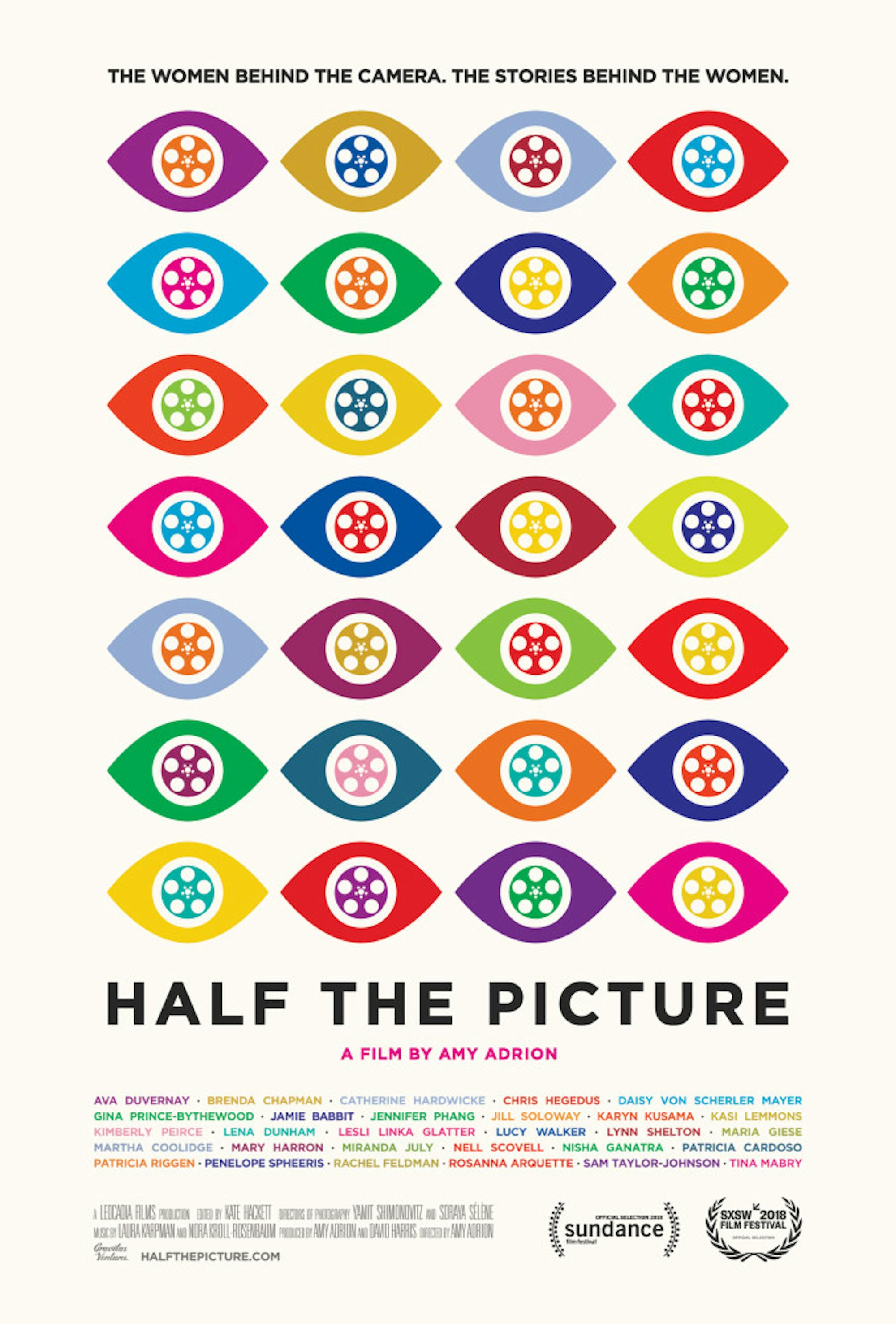It’s no secret that men disproportionately dominate positions of power. "La La Land" (2016) is no exception -- in fact, as Amy Adrion’s "Half the Picture" intimately explores, women in the film industry fare far worse than their male counterparts. Despite graduating from the University of California, Los Angeles top of her class with a master of fine arts in directing, garnering numerous awards and gaining years of experience in industry, Adrion struggled to find funding for her projects. Meanwhile, the men around her kept getting hired, the #MeToo movement jumpstarted conversations about hidden and discriminatory narratives and the American Civil Liberties Union began calling for investigations into systemic discrimination of women in film and television production. Adrion wondered if she was not alone in her experience after all, as she and her fellow female filmmakers marveled at the women who had managed to fight their way to the top of the field.
So Adrion decided to ask them about it.
Over the course of 18 months, Adrion and her small crew filmed nearly 40 interviews around Los Angeles, featuring a star-studded roster of interviews including Transparent (2014–) showrunner Jill Soloway, Ava DuVernay, Lena Dunham, Miranda July, Catherine Hardwicke and Gina Prince-Bythewood. Adrion spoke about the film ahead of its showing in Tisch Library on Nov. 13, presented by Tufts Women in Filmmaking.
“Often, the women we interviewed would introduce us to other women in their network,” Adrion said. “The most surprising thing was that these women, who I consider geniuses, have all experienced the same kind of rejections as I have.”
Adrion said that the question of who gets to tell a marginalized story is inherently gendered. Women are far faster to question their ability to take on the challenge of directing, thanks to internalized misogyny and a lack of opportunities available to them, according to Adrion. Furthermore, Adrion said that female filmmakers are more familiar with the frustration and damage of having their lives depicted inaccurately than their male counterparts, who often take creative control.
“It’s a scary time,” Adrion said. “I think people are very aware and trying to figure out what is the right way to tell these stories. How do you be respectful and authentic, but also free to tell these stories?”
Jennifer Burton, professor of the practice in the Department of Theatre, Dance, and Performance Studies, who accompanied Adrion throughout her day at Tufts, agreed.
“In a just and perfect world, anyone can tell anybody’s story,” Burton said. “But we are not in a just and perfect world.”
Interspersed with staggering statistics and clips of female-directed films, "Half the Picture" walks the line of despair for the present and inspiration for the future. Despite the diverse range of backgrounds and artistic expressions encompassed by the women onscreen, their stories are heartbreakingly similar in tone. From dealing with sexism on set to fighting for their place on a creative team to nursing the guilt that comes with sacrificing a successful career for motherhood, even the most successful artists in "Half the Picture" exude a jaded weariness, broken only by the legal progress hinted by the ACLU and Equal Employment Opportunity Commission discrimination settlement towards the film’s end.
The film also features female scholars, journalists and lawyers who have noticed alarming patterns of discrimination in the industry. The multicam setup of "Half the Picture" reaches behind the scenes to illume the work of Adrion and the women she employed in bringing these stories to the screen; she started the production process with no salary to offer and paid her crew with equipment loans.
“When it comes to financing, I learned by doing, messing it up and cobbling it together,” Adrion said.
The crew's dedication to the film’s topic propelled Adrion and her team to success, winning the special Picturehouse #WhatNext Prize at Sundance Film Festival: London and the Audience Award for Documentary Feature at Lighthouse International Film Festival.
Adrion hopes that this film will inspire young female artists to take the risk.
“You have to make it work for yourself,” Adrion said. “There are all these forces at work, so keep going. It’s possible, and these women will show you how it’s possible.”
'Half the Picture' peels back curtain on age-old sexism, discrimination in Hollywood

A promotional poster for 'Half the Picture,' a documentary directed by Amy Adrion about sexism and discrimination of women in Hollywood, is pictured.





